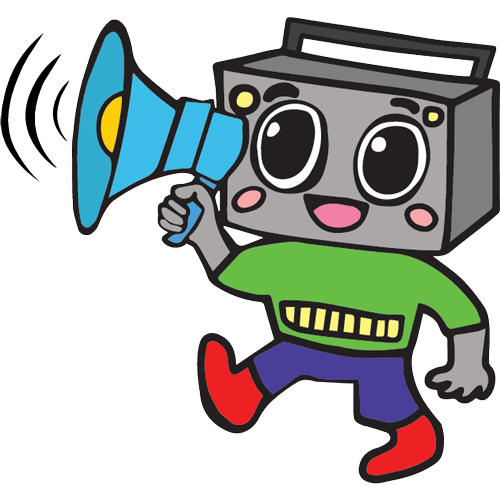Questions to Ask Your Speech Therapist
To the average person without much knowledge about communication disorders, speech therapy can be a relative unknown – that is, until you or a loved one have a need for such services.
While it can be overwhelming to dive headfirst into a new diagnosis or medical problem, speech-language pathologists (SLP) are trained to help you understand and feel more comfortable about a treatment plan and moving forward. To help provide more information on the ins and outs of speech therapy, we spoke with Dr. Jessica Galgano, executive director and founder of Open Lines Speech and Communication, to explore questions a patient should ask their SLP when deciding on a plan of care.
When Is Speech Therapy Needed?
A speech-language pathologist is a licensed professional who specializes in the assessment, diagnosis, and treatment of a full range of speech, language, and swallowing disorders.
Speech-language pathologists work with people across the lifespan – from infancy through end-of-life care – to support and enhance a large spectrum of feeding, swallowing, and communication needs.
You may need speech therapy if you experience difficulty with any of the following:
Speech/Speaking
- Articulating sounds correctly and easily
- Speaking fluently without stuttering, tension, reformulations, blocks, or repetitions of sounds or words
- Speaking without an accent or with an accent people can understand
- Public speaking and delivery
Voicing
- Voicing for long periods of time (become easily fatigued)
- Voicing without experiencing pain and tension in your larynx
- Vocal expression through pitch and loudness change
- How high or how deep your voice is
- Good breath support when talking (not running out of breath)
- Speaking with healthy vocal quality (voice that is not hoarse, breathy, strained, shaky, or rough)
- Getting your voice loud enough to be heard
Language, Literacy and Communication
- Understanding what others are saying 1:1 or in a group
- Comprehending written text
- Following directions
- Understanding and expressing humor
- Finding the words you want to use when you want to use them
- Sharing thoughts, ideas, and personal stories
- Staying on topic
- Using appropriate grammar when speaking or writing
Cognitive-Communication
- Holding on to details and multiple pieces of information
- Memory recall
- Organizing thoughts and ideas for speaking and writing
- Filtering out extraneous information
- Paying attention and concentrating
- Problem solving and judgment
- Decision-making and verbal reasoning
Social-Communication
- Initiating, maintaining, and transitioning topics of conversation
- Using greetings, expressions, and social exchanges
- Understanding non-verbal aspects of communication, including body language, facial expression, and tone of voice
- Perspective taking and point of view
- Understanding and navigating social contexts
Feeding and Swallowing
- Chewing all types of food consistencies with ease and efficiency (no pocketing of food in mouth; no residue of food leftover after eating)
- Drinking and eating safely without coughing or clearing the throat
- Drinking and eating without shortness of breath or episodes of choking
- Maintaining adequate nutrition and hydration
- Enjoying meals and eating
Who Needs Speech Therapy?
Anyone who is interested in help to enhance or improve any aspect of their speech, communication, or swallowing would benefit from speech therapy services. Speech language pathologists work with people of all ages and all abilities.
Integral to the speech therapy role is education and training partnerships with families and medical and educational care teams, when appropriate, to ensure everyone involved in a person’s care feels confident and competent providing communication and feeding/swallowing support.
Speech Therapy for Infants
Some infants and children under 3 years of age require early intervention to support foundational feeding/swallowing and pre-linguistic and early communication skills. Difficulties may be due to organically based issues, such as Down’s syndrome or Prader Willi syndrome. However, many infants who do not have underlying medical issues may also benefit from intervention and may simply need a quick, intensive boost of support to jump start their development and provide parents with the education and support they need to help their child thrive.
Speech Therapy for Children
Many school age children benefit from speech, language, and literacy intervention for a variety of needs.
Toddlers may need help with early communication skills to help them better meet their needs. Speech and language therapy for toddlers help children develop and master foundational language skills they will later use in life and in school to learn new information, reason, and make decisions.
School-aged children might benefit from articulation therapy to help them produce sounds and words with greater clarity and fewer requests for repetition or clarification, which can be embarrassing and frustrating. Other children benefit from work targeting attention, organization, and language comprehension and use, so they can communicate and perform well at home and at school. Some children need help to improve their voice and loudness control, while older children may have more of a need to learn to use speech, voice, and loudness for public speaking demands.
Most importantly, children can benefit from exercises to foster communicative confidence so they can realize themselves as strong, fluent communicators. Effective therapy helps children express themselves in a way that is authentic and helps them tell their stories, express their ideas and share their knowledge in an organized, coherent, and cohesive manner.
Speech Therapy for Adults
Adults seek speech therapy to address a number of cognitive, speech, voice, swallowing, and communication needs. Commonly, speech, language, and cognitive-communication rehabilitation services are required following a traumatic brain injury or stroke to strengthen and retrain various issues related to swallowing, talking, understanding, reading, writing, attention, and memory.
Many adults with neurological conditions, including Parkinson’s Disease, cognitive fog or decline, Down’s syndrome, Abductor-type Spasmodic Dysphonia, or Essential Tremor, benefit from speech and language intervention to slow or prevent decline in motor-speech, voice, and cognitive-communication functioning. Therapy can significantly improve a person’s confidence and desire to communicate as well as their ability to more fully participate in their life!
Those who rely on their voice professionally, including television show hosts, social media celebrities, actors, singers, voiceover artists, attorneys, professors, and business professionals, or those who wish to enhance their delivery also benefit from the services of a speech therapist. Therapists with experience and a specialty in this area will provide expert coaching and training to optimize speech and voice for greater ease, comfort, quality, clarity, and endurance when speaking and to maximize communicative impact.
When to Start Speech Therapy?
In general, the sooner one begins a program to help them change, the more quickly one will potentially make gains and experience results. However, it is never too late to start speech therapy!
If you have any questions or concerns regarding any aspect of your or your loved one’s speech, communication, or swallowing abilities, you should contact a licensed, professional speech-language pathologist as soon as possible. Your SLP will listen to your concerns and help guide you to a solution.
How Long is a Speech Therapy Session?
Length of therapy sessions depend on many factors, including the following:
- Age
- Type, nature, and severity of medical and treating diagnoses
- Underlying theories of cognition, learning, motor skill acquisition, and neuroplasticity that guides intervention
- Individual goals and needs
Sessions can range from 30 minutes weekly during maintenance stages to more than three hours daily for more intensive programs. Change and progress is intricately tied to principles of motor learning and neuroplasticity and require intensity, repetition, and saliency! The main takeaway? The more you put in, with the right guidance, the greater your gains!
Speech Therapy Services at Open Lines®
At Open Lines®, every treatment plan begins with a one-on-one, individual evaluation with a licensed speech language pathologist who will take you or your loved one through a series of diagnostic examinations to capture a holistic and in-depth understanding of the unique set of needs, strengths, and goals that bring you to Open Lines for support.
With your collaboration, results of this evaluation will help your Open Lines® team develop a personal plan of action with tailored exercises developed to help you optimize your communication or swallowing skills and help you experience a positive outcome.
If you’re struggling with communication difficulties, it’s time to turn to Open Lines®. Contact us via phone (212-430-6800), email [email protected], or by filling out our convenient contact form. Improve your communication skills and unlock your potential with Open Lines® Speech and Communication in New York today!
Get in Touch With Open Lines®














